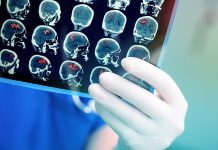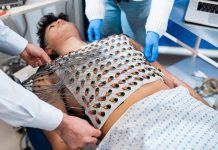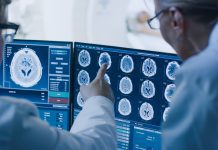Nicotine Pouches: What they are and why young people are using them
Nicotine pouches are rising in popularity, touted as the ideal alternative to smoking or vaping, whilst providing a discreet experience. But are they truly...
Mental wellbeing boosted by biodiversity, says King’s College London
A new King’s College London study suggests that biodiversity can have profound effects on mental wellbeing.
The research, funded by the National Institute for Health...
Lab-grown ‘mini-guts’ may revolutionise Crohn’s disease treatment
Cambridge scientists have grown ‘mini-guts’ to understand Crohn's disease and better identify personalised treatment options.
Crohn’s disease is a form of inflammatory bowel disease (IBD)....
Wearable brain scanner provides the clearest picture yet of developing brains
New research has given the clearest picture of young children’s developing brains, using a wearable brain scanner.
University of Nottingham researchers have developed a novel...
AI cameras could help doctors identify serious infections
Measuring a patient's pulse, breathing, and blood pressure by scanning their face with an AI camera could be the future of infection diagnosis.
Infection...
The missing ingredient in sunscreen that minimises sun skin damage
A discovery by the University of Bath illuminates a key ingredient missing from sunscreen products that can better protect against sun skin damage.
Research has...
The positive impact of physical fitness on primary school children
A new study finds that primary school children that partake in physical fitness have a better quality of life and improved concentration.
Physical fitness is...
Half of children with ADHD face emotional challenges
Scientists from the University of Cambridge have found that problems with regulating emotions may be a key symptom of attention deficit hyperactivity disorder (ADHD).
Researchers have...
Unravelling the complexities of the immune system with AI
AI is helping to broaden our understanding of the immune system, including how it responds to and stores information on external pathogens and diseases....
Using AI to develop diagnostic technologies
Oxford University scientists created a world-first AI diagnostic test that could dramatically improve the efficiency of viral testing. Lorna Rothery spoke to co-developer Dr...
Study reveals the mechanism behind COVID brain fog
A team of US researchers has potentially uncovered the cause of COVID brain fog and may help identify treatments.
Can reducing social media use improve health and well-being?
Health Europa looks at how reducing your social media use can boost your health and happiness.
The rapid proliferation of social media in recent years...
NHS introduces ‘sponge-on-a-string’ test for Barrett’s oesophagus
The NHS is set to roll out a simple ‘sponge-on-a-string’ to diagnose Barrett’s oesophagus – a move that will benefit thousands of patients.
The innovative...
Antidepressant use during pregnancy linked to altered child brain development
A new study provides direct evidence that antidepressant use during pregnancy can impact child brain development and contribute to the risk of mental health...
Patients can now access their prescriptions through the NHS App
Starting today, millions of individuals will have access to their prescription information through the NHS App.
The endless applications of robotic process automation in healthcare
Paul Donoghue-Parker outlines how robotic process automation (RPA) and its supporting technologies could improve healthcare delivery and streamline vital systems.
Healthcare institutions, such as NHS...
Hope vs hype: What has been achieved in tissue engineering and regenerative medicine?
Tissue engineering and organ regeneration expert, Dr Ekaterine Berishvili, discusses the progress, opportunities and challenges of regeneration and repair in organ transplantation.
The growing burden...
Heart vest could predict sudden cardiac death risk
A new study has suggested that a heart vest can be used to better identify people at high risk of sudden cardiac death. Read more here.
Advanced MRI technology detects brain changes after COVID-19
Researchers used advanced MRI technology to examine the brains of 16 patients previously hospitalised for COVID-19 with persisting symptoms.
AI-driven screening identifies high breast cancer risk in mammograms
Cutting-edge technology harnessing Artificial Intelligence (AI) is revolutionising the early detection of breast cancer, pinpointing women at high risk through mammography screening examinations.
Led by...


























